Shocking news emerged that the UK’s leading independent provider of healthcare waste management had been failing to dispose of 350 tonnes of medical waste, which included human body parts; sparking a major national incident and highlighting the importance of the waste duty of care.
This blog explains what the ‘Duty of Care’ is, providing you with practical guidance on how to meet your waste duty of care requirements. The ‘Duty of Care’ applies to anyone who produces, carries, keeps, dispose of, treats, imports or has control of waste. This process begins at the point you intend to discard something and produce waste. So more than likely it will apply to you and your business….
What's my duty of care?
 The law requires anyone dealing with waste to keep it safe, make sure it’s dealt with responsibly, and only given to businesses who are authorised to take it. However your responsibility doesn’t end at the point when it’s taken away by your waste contractor.
The law requires anyone dealing with waste to keep it safe, make sure it’s dealt with responsibly, and only given to businesses who are authorised to take it. However your responsibility doesn’t end at the point when it’s taken away by your waste contractor.
How long does your duty of care last?
Your Duty of Care continues until the final point at which your waste is finally recovered or disposed of. It’s therefore extremely important that you take the time to understand and record where your waste is ultimately treated, how it gets there and that all those managing it have the appropriate licenses and permits to do so.
 The duty of care legislation makes provision for the safe management of waste to protect human health and the environment. And it’s issued under section 34 of the Environmental Protection Act 1990. Failure to comply with the duty of care is an offence subject to an unlimited fine on conviction.
The duty of care legislation makes provision for the safe management of waste to protect human health and the environment. And it’s issued under section 34 of the Environmental Protection Act 1990. Failure to comply with the duty of care is an offence subject to an unlimited fine on conviction.
Huge stockpiles of human body parts and surgical waste
Right now, Healthcare Environmental Services Ltd regulated by the Environment Agency (EA) is in breach of its environmental permits at sites which handle tonnes of healthcare waste from a number of NHS trusts. As a result, the EA is taking enforcement action against the operator to bring the company back into compliance with their permits. And they have launched a criminal investigation. This could be an unlimited fine.
At least 15 NHS Trusts have served termination notices to formally terminate their contracts with Healthcare Environmental Services Ltd, which could collapse following enforcement action against the company by government regulators. Don't make the same mistakes with your waste.
Free learning content: 'What is? Healthcare Waste'
Learning is a key component of what we do. Our learning changes behaviour, improves personal and business performance, and drives success across our customer base. Our mission is to empower present and future generations with the knowledge to improve the environments in which we live and work.
Use this simple form to request 'What is? Healthcare Waste'. We'll then email you access to this free learning module.
What does the duty of care apply to?
The duty of care requirements applies to household, industrial and commercial waste, also known as controlled waste.
Waste is any substance or object that the holder discards, intends to discard or is required to discard. The meaning of “discard” applies to “disposal” (any operation which is not recovery eg landfill) and “recovery” – (any operation which has the main result of waste serving a useful purpose by replacing non-waste materials that would otherwise have been used eg Energy from Waste [EFW]) – which can be intentional or unintentional on the part of the holder.
When disposing of your waste you also have a legal obligation to consider the ‘waste hierarchy’ and make sure that you have considered the best possible treatment process and environmental outcome of treating your waste.
Free learning content: 'What is? The Waste Hierarchy'
You can use this form to request 'What is? The Waste Hierarchy'. We'll then email you access to this free learning module.
What can you do?
 Check the next waste holder is authorised to take the waste.
Check the next waste holder is authorised to take the waste.
- Ask the next waste holder, “Where are you going to take the waste?”
- Carry out more detailed checks if you suspect the waste is not being handled in line with the duty of care.
- Request evidence that your waste has arrived at the intended destination and that it’s been accurately described.
If you receive waste, you must cooperate with the previous waste holders in any measures that they’re taking to comply with their duty of care. This includes supplying evidence that previous holders may need to determine that their waste has reached its end of waste location.
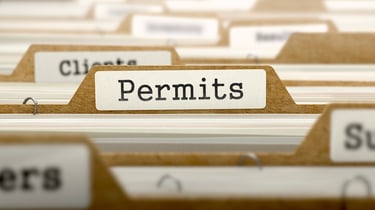 Each holder in the waste chain shares the duty of care obligations.
Each holder in the waste chain shares the duty of care obligations.
- If you use a waste dealer or broker, you each have a responsibility to comply with your duty of care obligations and to ensure that the waste is only transferred to an authorised person or establishment.
- If you transfer waste to a waste treatment facility for preliminary treatment, you will generally still be responsible for the complete recovery or disposal operation.
Beware of rogue traders!
 If the person who takes the waste from you isn’t authorised to do so, or your waste is illegally disposed of (eg flytipped), you could be prosecuted and fined if you have not taken all reasonable measures to meet your duty of care obligations.
If the person who takes the waste from you isn’t authorised to do so, or your waste is illegally disposed of (eg flytipped), you could be prosecuted and fined if you have not taken all reasonable measures to meet your duty of care obligations.
What’s your organisation’s duty of care requirements?
You must take all reasonable steps to:
- Prevent unauthorised or harmful deposit, treatment or disposal of waste.
 It’s illegal to treat, keep or dispose of controlled waste in a way that is likely to cause pollution of the environment or harm to human health. This includes misclassification of waste ie recording it as commercial waste when it is in fact clinical waste.
It’s illegal to treat, keep or dispose of controlled waste in a way that is likely to cause pollution of the environment or harm to human health. This includes misclassification of waste ie recording it as commercial waste when it is in fact clinical waste.
- Prevent a breach (failure) by any other person to meet the requirement to have an environmental permit, or a breach of a permit condition.
For example, in a condition which means that waste cannot be managed or stored safely pending removal eg waste being stored outside the confines of buildings. Or in a quantity that causes a facility to exceed the limits allowed by its permit.
- Prevent the escape of waste from your control.
 You must make sure it is handled and stored safely and securely. You can do this by using containers that are clearly and correctly labelled; suitable for the storage, transport and subsequent management activities by you and following waste holders. Containers must be designed to prevent leakage, contamination or spoiling of waste (spoiled waste is waste that cannot be managed in the way intended).
You must make sure it is handled and stored safely and securely. You can do this by using containers that are clearly and correctly labelled; suitable for the storage, transport and subsequent management activities by you and following waste holders. Containers must be designed to prevent leakage, contamination or spoiling of waste (spoiled waste is waste that cannot be managed in the way intended).
You must limit access to the waste to only those who are authorised to handle it. This will help prevent accidents, pests, incidents of vandalism and theft. It will also stop unauthorised people adding to the waste and so invalidating the waste description. Vehicles must be covered, and waste must be secured appropriately for transport purposes.
- Provide an accurate description of the waste when it is transferred to another person.
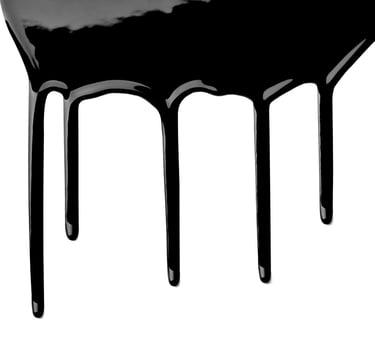 When you transfer waste to another person, you must ensure that a written description of the waste is agreed and signed by you and the next holder. This can be done electronically, or with a paper ‘waste transfer note’ document.
When you transfer waste to another person, you must ensure that a written description of the waste is agreed and signed by you and the next holder. This can be done electronically, or with a paper ‘waste transfer note’ document.
Hazardous waste requires a ‘consignment note’ document. Waste is generally considered hazardous if it (or the material or substances it contains) are harmful to humans or the environment eg asbestos, chemicals, print toner, batteries, solvents, pesticides, non-edible oils, fridges and hazardous waste containers.
If you receive waste, you must ensure the waste matches the written description and that your permit allows you to accept such waste.
Keep your documents
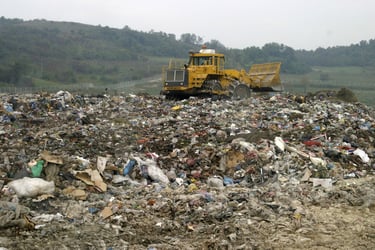 You must keep a copy of the waste description for waste you have transferred or received for:
You must keep a copy of the waste description for waste you have transferred or received for:
- Two years for non-hazardous waste.
- Three years for hazardous waste consignment notes (different retention periods apply for receivers of hazardous waste).
- Six years if you are a landfill operator for non-hazardous waste.
- The lifetime of your permit if you are a landfill operator for hazardous waste.
- The lifetime of an environmental permit.
If an authorised officer of the EA, Natural Resources Wales or local authority asks you to provide the written description of waste, or a copy of it, and you fail to do so, they can issue you a fixed penalty notice.
Where the waste is hazardous waste, a variable monetary penalty for breach of the requirements to supply information may be issued.
This guidance should help you to comply with your duty of care. Remember! Failure to comply with the duty of care requirements is a criminal offence and could lead to prosecution.
Do you need comprehensive accredited healthcare waste training for yourself or your workforce?
Both of our courses have been developed to improve your knowledge around the safe and legal management of healthcare waste. The Introduction course is recognised by IEMA and accredited by the Royal College of Nursing, and the Best Practice course is based on guidance developed by the Department of Health and Social Care.
'An Introduction to Managing Healthcare Waste' – a 40 minute module which provides an interactive foundation to the safe management of healthcare waste.
'Best Practice Management of Healthcare Waste' – a 4 hour course to help you gain a complete understanding of sustainable healthcare waste management, how to ensure it is managed in a legally compliant manner, and in line with best practice.

Our full range of modules, including IEMA recognised courses, cover the circular economy, corporate sustainability and environmental law and compliance: http://www.dittosustainability.ai/learning









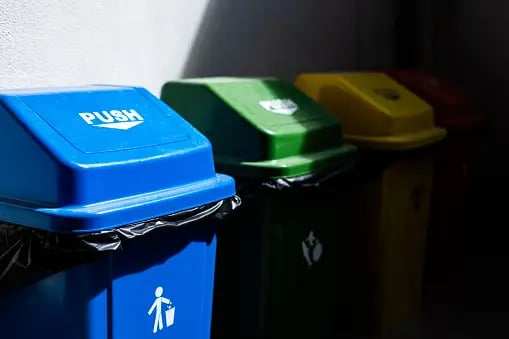
 The law requires anyone dealing with waste to keep it safe, make sure it’s dealt with responsibly, and only given to businesses who are authorised to take it. However your responsibility doesn’t end at the point when it’s taken away by your waste contractor.
The law requires anyone dealing with waste to keep it safe, make sure it’s dealt with responsibly, and only given to businesses who are authorised to take it. However your responsibility doesn’t end at the point when it’s taken away by your waste contractor. The duty of care legislation makes provision for the safe management of waste to protect human health and the environment. And it’s issued under section 34 of the Environmental Protection Act 1990. Failure to comply with the duty of care is an offence subject to an unlimited fine on conviction.
The duty of care legislation makes provision for the safe management of waste to protect human health and the environment. And it’s issued under section 34 of the Environmental Protection Act 1990. Failure to comply with the duty of care is an offence subject to an unlimited fine on conviction. Check the next waste holder is authorised to take the waste.
Check the next waste holder is authorised to take the waste. Each holder in the waste chain shares the duty of care obligations.
Each holder in the waste chain shares the duty of care obligations. If the person who takes the waste from you isn’t authorised to do so, or your waste is illegally disposed of (eg flytipped), you could be prosecuted and fined if you have not taken all reasonable measures to meet your duty of care obligations.
If the person who takes the waste from you isn’t authorised to do so, or your waste is illegally disposed of (eg flytipped), you could be prosecuted and fined if you have not taken all reasonable measures to meet your duty of care obligations. You must make sure it is handled and stored safely and securely. You can do this by using containers that are clearly and correctly labelled; suitable for the storage, transport and subsequent management activities by you and following waste holders. Containers must be designed to prevent leakage, contamination or spoiling of waste (spoiled waste is waste that cannot be managed in the way intended).
You must make sure it is handled and stored safely and securely. You can do this by using containers that are clearly and correctly labelled; suitable for the storage, transport and subsequent management activities by you and following waste holders. Containers must be designed to prevent leakage, contamination or spoiling of waste (spoiled waste is waste that cannot be managed in the way intended). 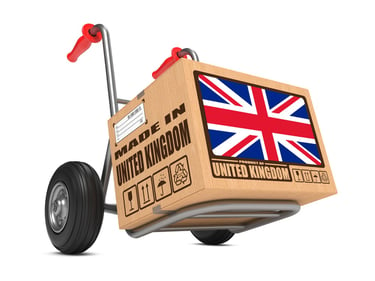 You must check whether a person or business is authorised to take waste before you transfer your waste to them. Someone who has valid registrations and permits. You can ask the person or business you transfer your waste to, or who arranges the transfer, for evidence of their authorisation, such as a copy of their permit or proof of their exemption registration.
You must check whether a person or business is authorised to take waste before you transfer your waste to them. Someone who has valid registrations and permits. You can ask the person or business you transfer your waste to, or who arranges the transfer, for evidence of their authorisation, such as a copy of their permit or proof of their exemption registration.  When you transfer waste to another person, you must ensure that a written description of the waste is agreed and signed by you and the next holder. This can be done electronically, or with a paper ‘waste transfer note’ document.
When you transfer waste to another person, you must ensure that a written description of the waste is agreed and signed by you and the next holder. This can be done electronically, or with a paper ‘waste transfer note’ document. You must keep a copy of the waste description for waste you have transferred or received for:
You must keep a copy of the waste description for waste you have transferred or received for: 